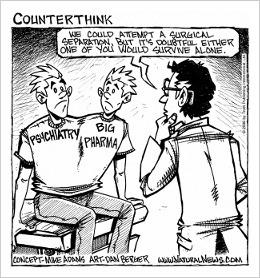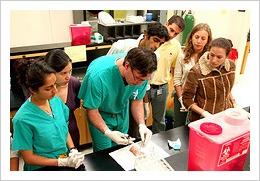 The principal investigator of this project is Sheila Kaplan. The EPA has a vast mandate - protecting air, water, land and people from pollutants. But year after year, through both Republican and Democratic administrations and Congresses, strong economies and weak ones, the institution fails the American public in many ways. The evidence abounds. Reports by the Government Accountability Office (formerly the General Accounting Office), EPA's own Inspectors General and the media have long documented EPA's inability to guard Americans from toxic chemicals, mining waste, leaking Superfund sites, greenhouse gas emissions, contaminated water, air pollution and other hazards.... Read more about The Economy of Influence Shaping American Public Health and the Environment
The principal investigator of this project is Sheila Kaplan. The EPA has a vast mandate - protecting air, water, land and people from pollutants. But year after year, through both Republican and Democratic administrations and Congresses, strong economies and weak ones, the institution fails the American public in many ways. The evidence abounds. Reports by the Government Accountability Office (formerly the General Accounting Office), EPA's own Inspectors General and the media have long documented EPA's inability to guard Americans from toxic chemicals, mining waste, leaking Superfund sites, greenhouse gas emissions, contaminated water, air pollution and other hazards.... Read more about The Economy of Influence Shaping American Public Health and the Environment

 The principal investigator of this project is
The principal investigator of this project is  Although all medical specialties have come under scrutiny for financial conflicts of interest, the field of psychiatry has been at the epicenter of this "crisis of credibility" (Fava, 2006). Researchers, investigative journalists, and policy makers have raised questions about the extent of industry influence on the diagnostic and practice guidelines developed by the American Psychiatric Association (APA)....
Although all medical specialties have come under scrutiny for financial conflicts of interest, the field of psychiatry has been at the epicenter of this "crisis of credibility" (Fava, 2006). Researchers, investigative journalists, and policy makers have raised questions about the extent of industry influence on the diagnostic and practice guidelines developed by the American Psychiatric Association (APA)....  Professor
Professor  Professor
Professor  Professor
Professor  Dr.
Dr.  Recently, policymakers in the US have become concerned about the relationships between medical trainees and pharmaceutical industry representatives, because such interactions may affect trainees' professional development and their future prescribing practices. Lab fellow
Recently, policymakers in the US have become concerned about the relationships between medical trainees and pharmaceutical industry representatives, because such interactions may affect trainees' professional development and their future prescribing practices. Lab fellow